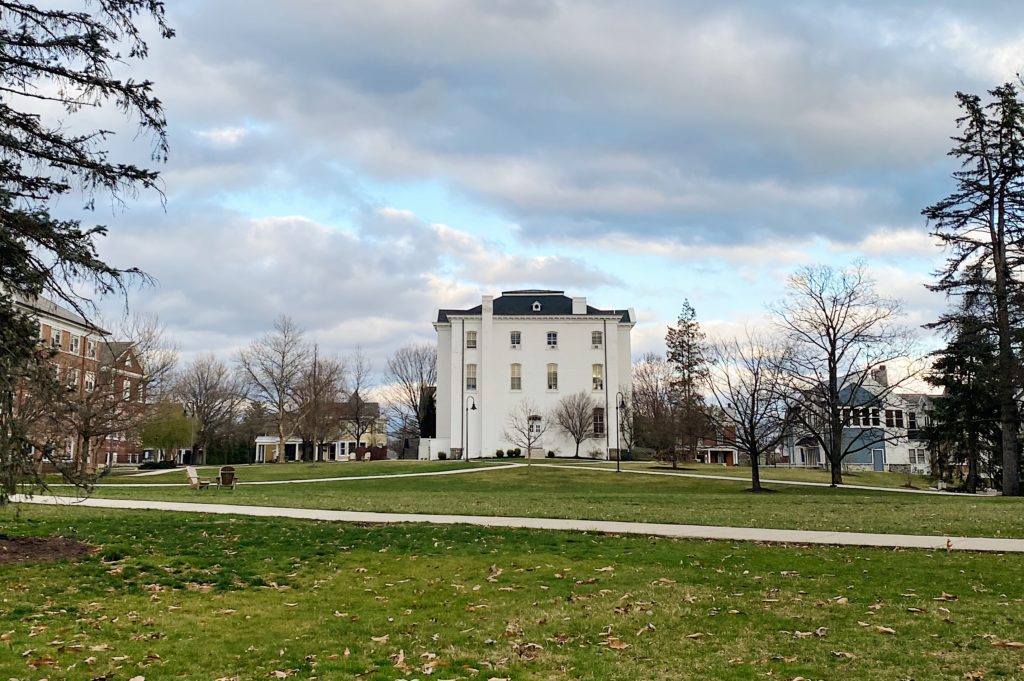Political Science Department Welcomes Professor Daniel Gillion as Second Speaker of the ‘Conversations 2020: Contextualizing the Election’ Series
By Katie Oglesby, News Editor, and Jane Fitzpatrick, Assistant News Editor
On Tuesday, Sept. 15, Gettysburg’s Political Science Department hosted the second lecture of their 2020 Election Series — “The Loud Minority: Why Protests Matter in American Democracy” — with Professor of Political Science at the University of Pennsylvania, Daniel Gillion.
Gillion began by dispelling certain myths about protesting, such as the common idea that protests don’t actually influence elections or generate political action. He discussed the potential for violence in current and past protests, as well.
“I believe that protests have this ability to influence elections by mobilizing individuals to turn out and also influencing who they decide to vote for,” said Gillion. “They are larger now than what they used to be. There’s actually less violence in some of these protests”
Gillion analyzed how protests shape American elections by focusing on the history of protests in America and the electoral process. He did so by discussing the idea of the “silent majority” and the “loud minority” :
“We first have to start with how we perceive protestors on the street…the loud minority, as I like to call them.”
According to Gillion, the loud minority has the power to influence the silent majority.
After his presentation, Gillion asked for questions from the audience. The Q&A session was moderated by the Chair of Civil War Era Studies and History, Jim Downs.
Downs asked Gillion how the perceived leaderlessness of the Black Lives Matter movement intersects with the movement’s ultimate goals.
“What is the exit strategy?” asked Downs.
“There isn’t a real endgame for the overall movement,” Gillion said, “…sometimes defunding the police, sometimes justice for Breonna Taylor…there isn’t an endgame unless the endgame is complete equality for America.”
Downs and Gillion went on to discuss the complicated relationship between the loud minority and the silent majority in regards to the Black Lives Matter movement. Gillion emphasized the idea that “you do not have to be completely on board with every bullet point” in order to be supportive of a protest movement.
It was noted that news outlets do not have the same sway on the public that they used to. People are watching passionate protestors on their television screens at home, and they are being influenced by what they see.
Gillion emphasized that the goal of protests isn’t necessarily to change people’s minds, “but rather to mobilize individuals with the same ideological bend.”
He ended the lecture on an optimistic note.
“Protests should be viewed as a democratic tool,” Gillion explained. “It allows individuals to have a voice, and it’s nice to know, at least in my mind, that we are speaking to one another — regardless of how we see issues and perspectives.”
Information on upcoming events in the Conversations 2020 series can be found at: https://calendar.gettysburg.edu/search/events?event_types[]=34539142227578&utm_source=twitter&utm_medium=social-posts&utm_campaign=reach-weekly-events-w

